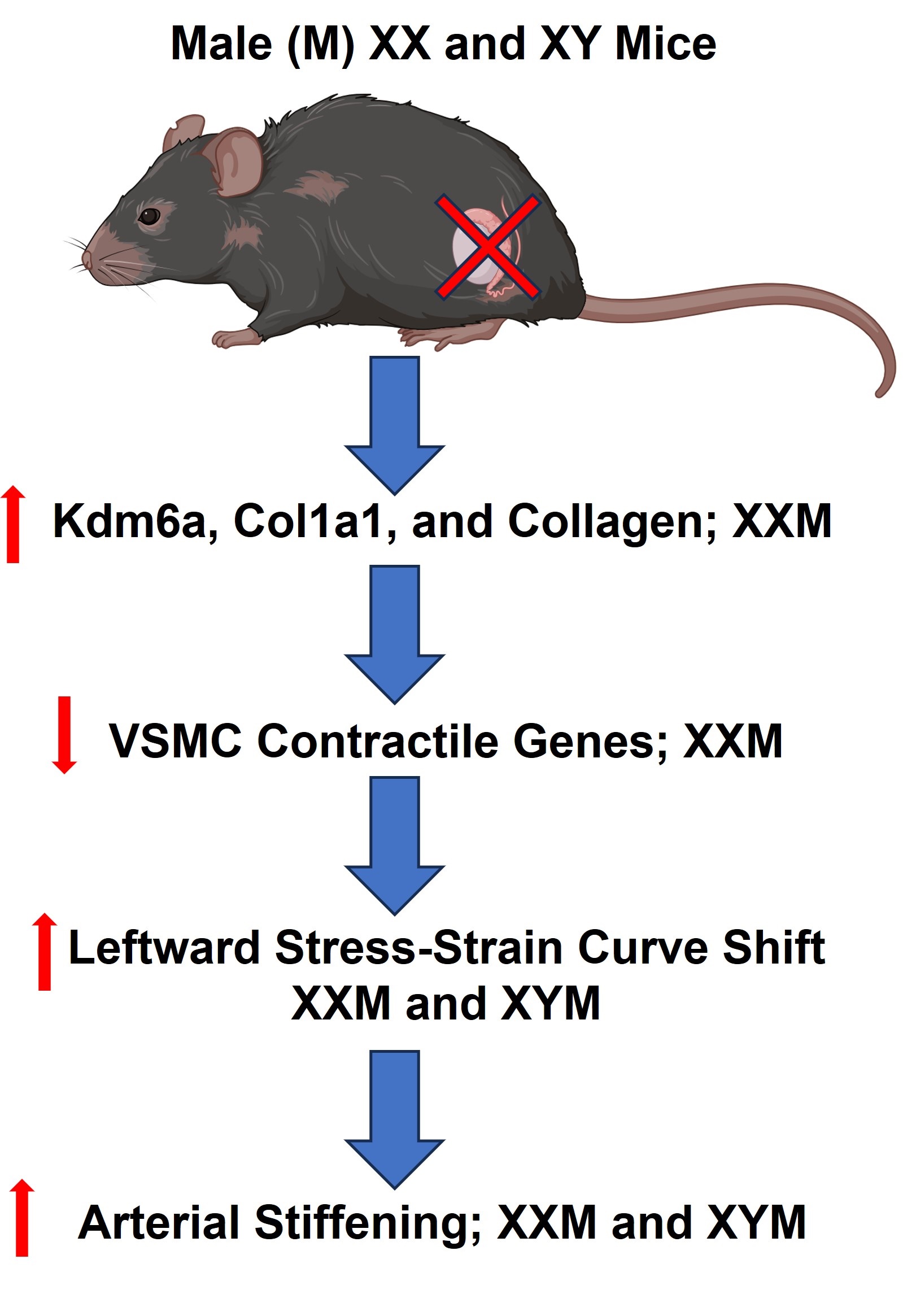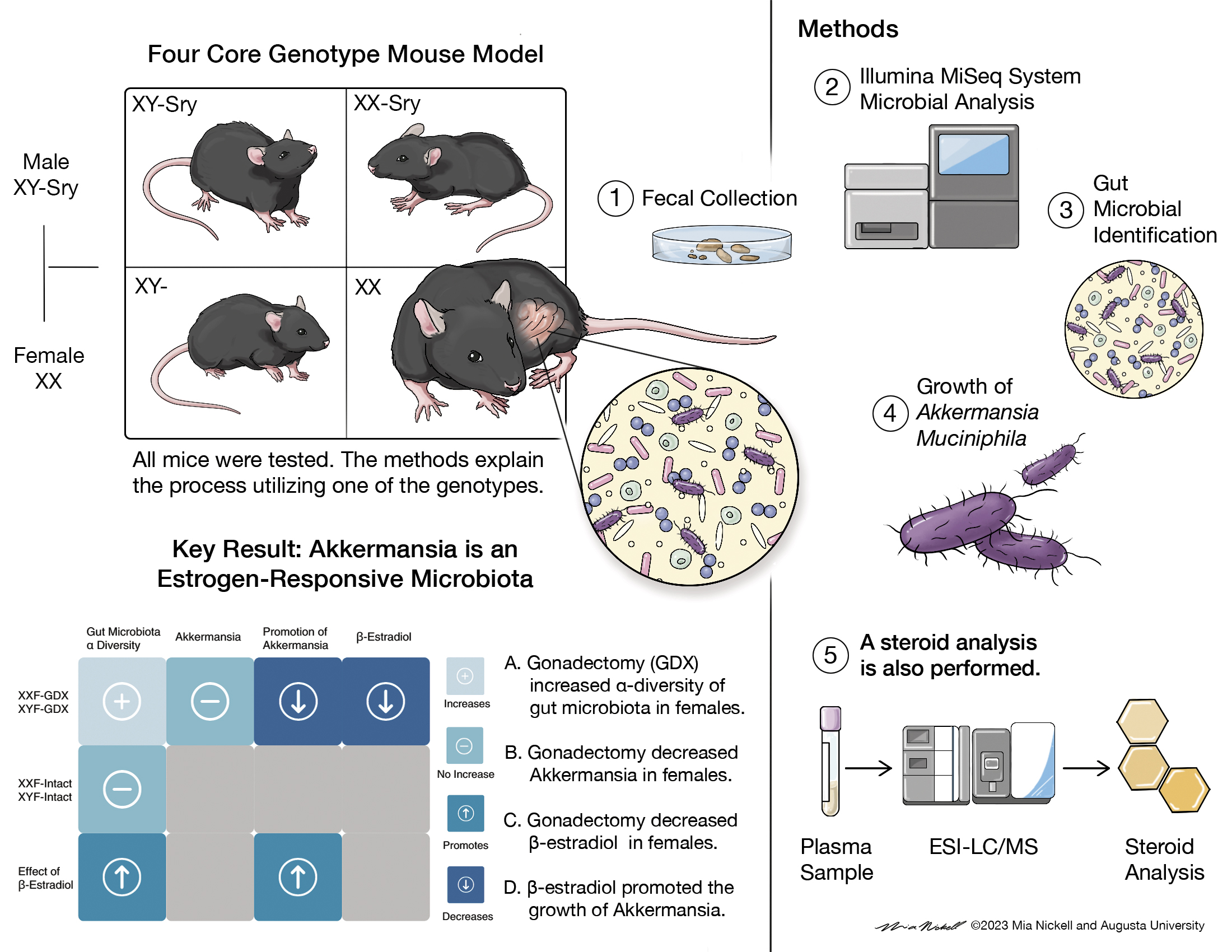- Augusta University
- Centers & Institutes
- Vascular Biology Center
- Benard Ogola - Research & Publications
Benard Ogola - Research & Publications
Research Interests
Dr. Ogola's laboratory’s main interest is to understand the role of sex chromosomes (XX and XY) in contributing to cardiovascular disease, including arterial stiffening. We are particularly interested in determining specific X-linked genes contributing to arterial stiffening, vascular malformation, and maladaptation.
Additionally, we are interested in long non-coding RNA (xist) in maintaining X chromosome inactivation in female vascular cells. We aim to establish sex differences in cardiovascular disease, understand the underlying mechanisms, and identify druggable targets. We work closely with the Vascular Biology Center and external collaborators. Our work involves transgenic rodents, ex vivo vascular assessments, and tissue culture models.
Research Projects



Publications